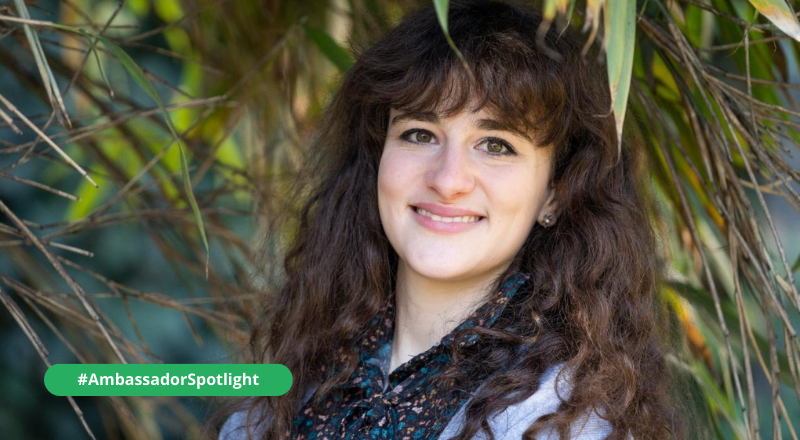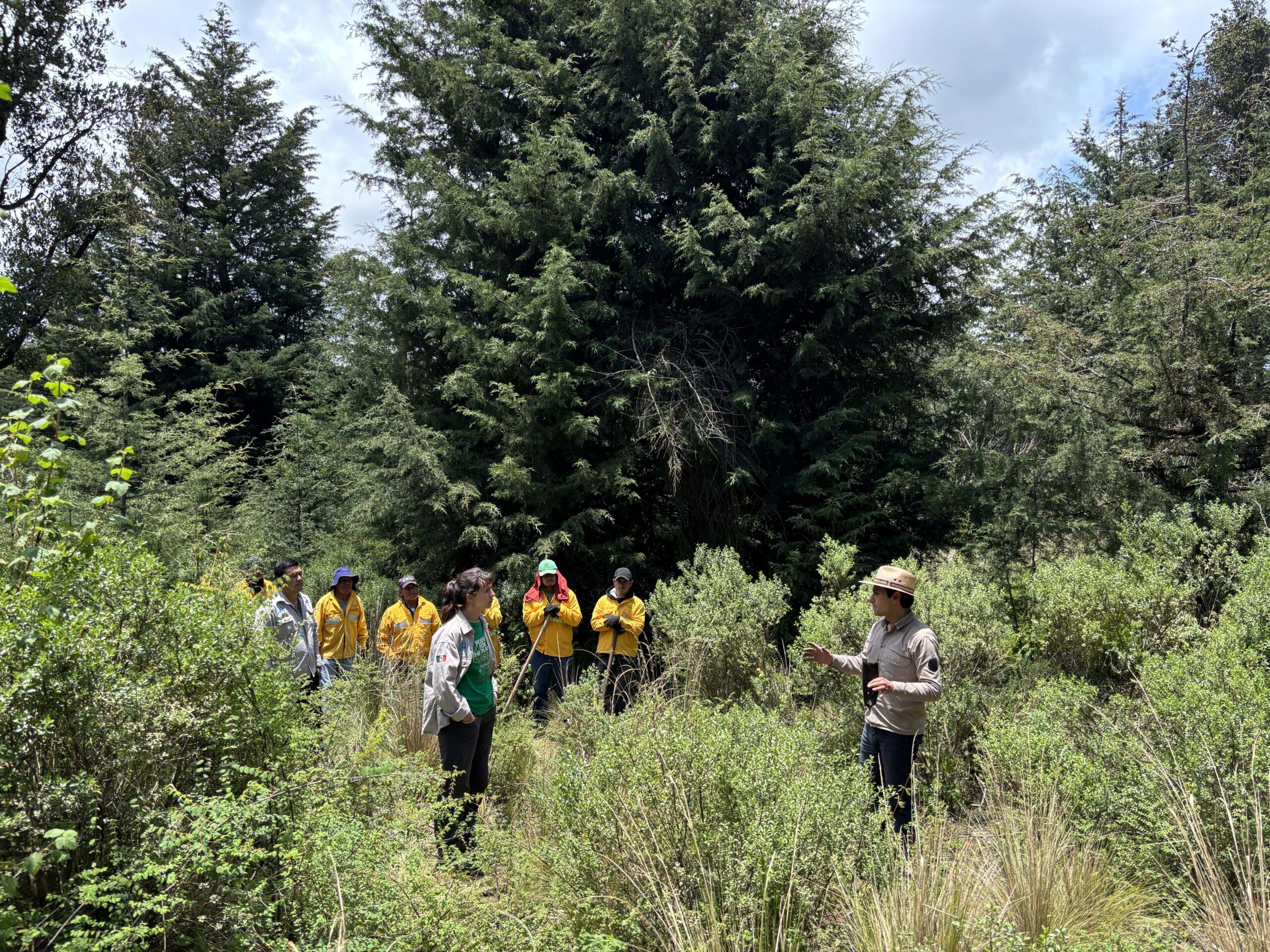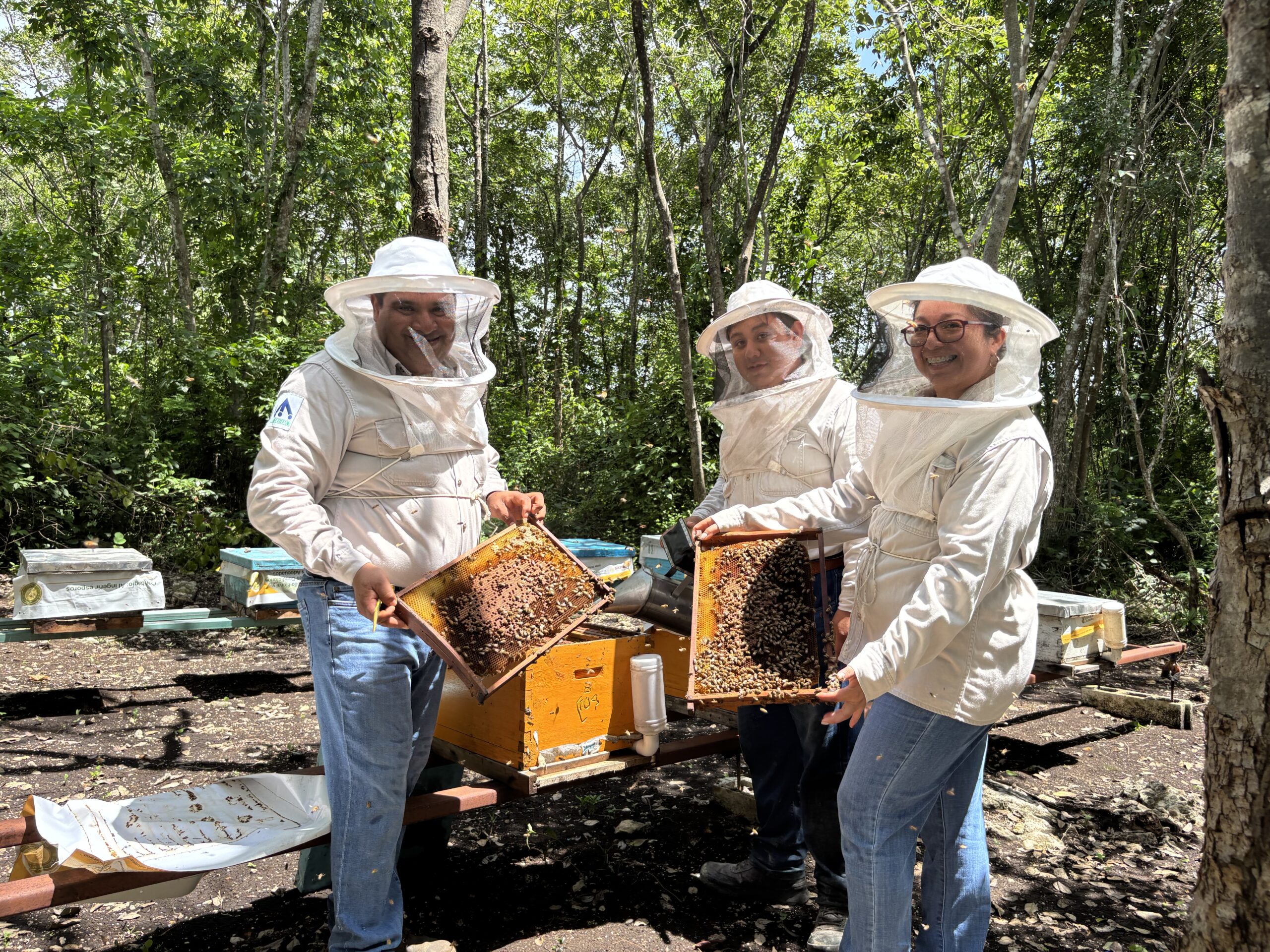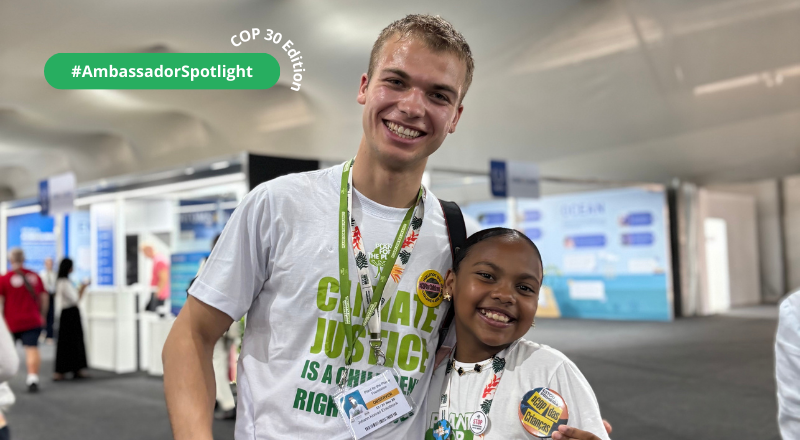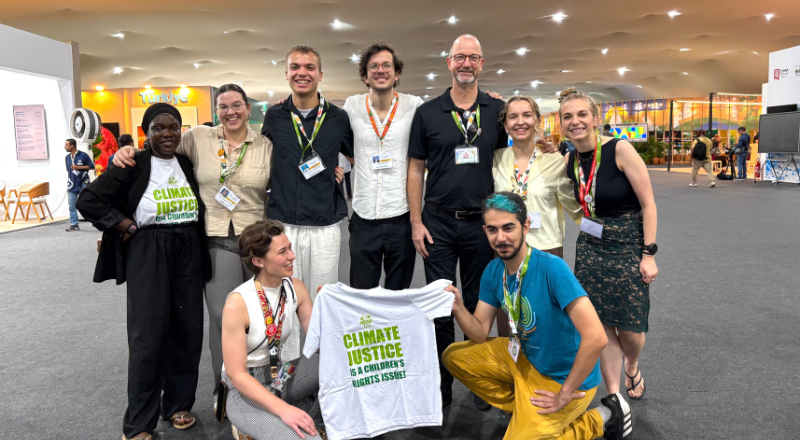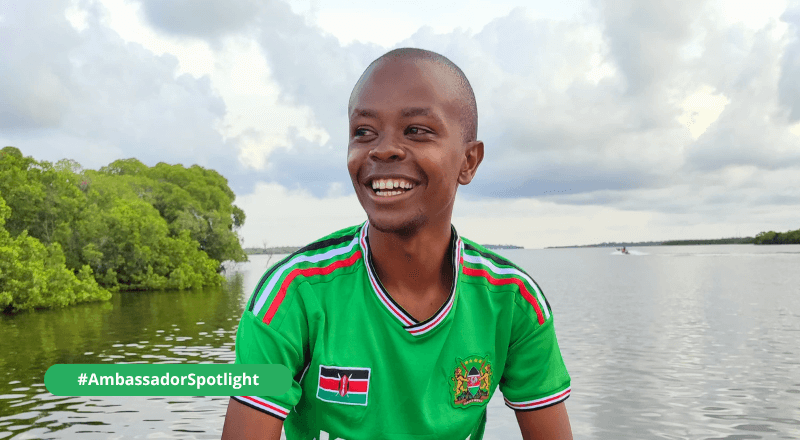
From the Series on Inspiring Climate Justice Ambassadors’ Stories Worldwide
“Many communities, especially those least responsible for the climate crisis, are already experiencing the harsh realities of extreme weather, and yet, many remain unaware of the causes or solutions. That’s why education and empowerment are so critical. The real impact starts with empowering people, especially youths and local communities, to truly understand the climate crisis, its causes, and how we can take action together.” – Julius Sila, in interview, 2024
When Julius Sila joined Plant-for-the-Planet in 2022, he was already a restoration expert. With over a decade of experience reviving mangrove ecosystems in Kenya through the COBEC project, Julius had long been leading bold, community-centered responses to the climate crisis.
But unlike many Climate Justice Ambassadors who began their journey through youth Academies, Julius’s entry point was different, born out of necessity on the frontlines of climate impact. His first connection with Plant-for-the-Planet came through a digital tool: the FireAlert app, which sends early-warning alerts for forest fires, in this case at his project.
From this first touchpoint, he became deeply involved in the global network. In 2024, his work was recognized globally when he received the Winner Worldwide prize at the Global Ambassador Awards. He took the stage at Plant-for-the-Planet’s Youth Summit, where he inspired fellow climate activists by sharing his story and vision.
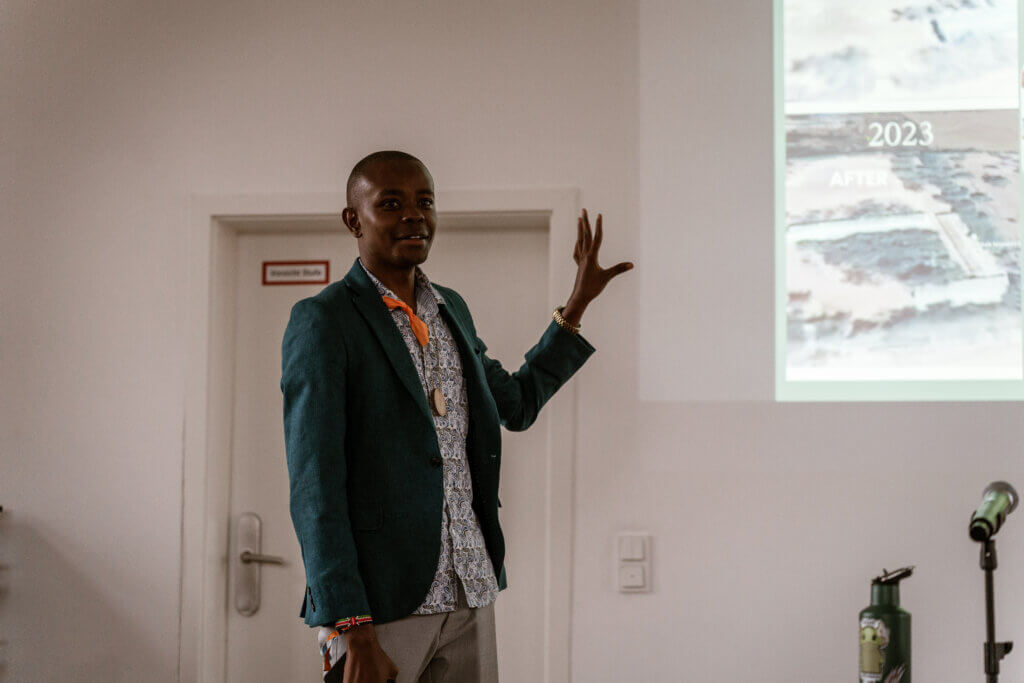
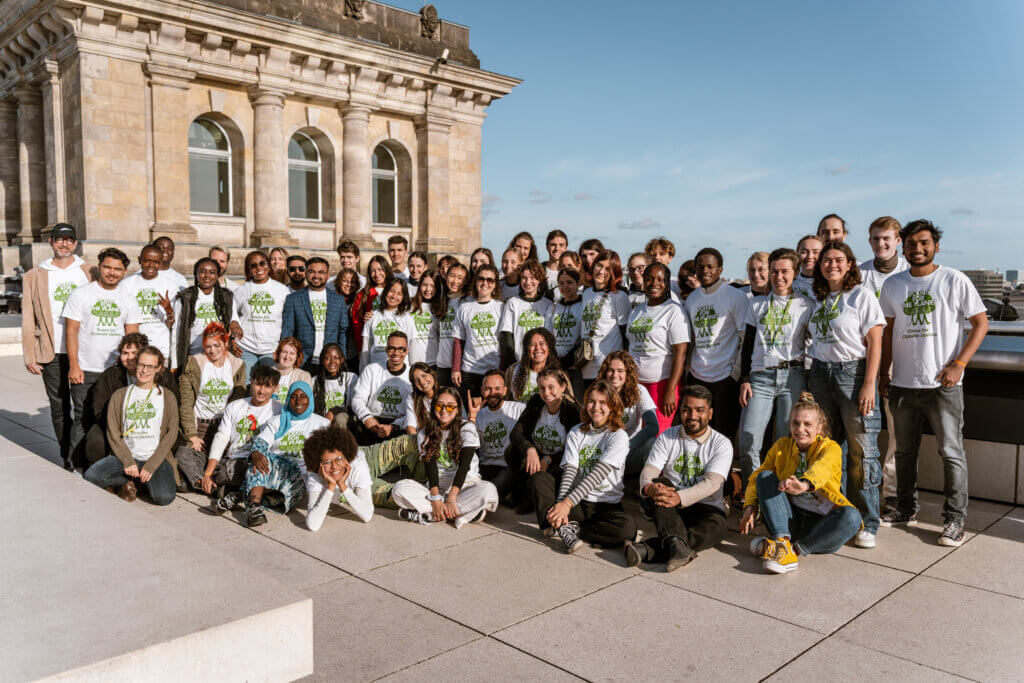
What lies in the heart of his work and drive, then?
At the heart of Julius’s work lies a simple, powerful truth: climate crisis is no longer a distant threat; it’s a lived reality. Kenya is no stranger to climate hardship – from raging wildfires and prolonged droughts to shrinking forests and rising sea levels, the environmental challenges are mounting, and the pressure on natural resources continues to grow. For many, the scale of these problems might feel overwhelming.
The hope is drawn from action, no matter how small. Inspired by the spirit of the hummingbird that, in legend, carries tiny drops of water to fight a great fire, Julius believes every effort counts. It’s a symbol of doing your part even in the face of great challenges. Therefore, he focuses his energy on educating and empowering others: “I focus on educating and empowering youth and local communities, especially those who may not yet know where to begin, to become climate stewards and champions of environmental sustainability,” he explains.
For him, the key to resilience lies in the grassroots movements. When people are equipped with knowledge and a sense of agency, they don’t just protect nature, they begin to transform their communities. Hope is rooted in that vision: a future where people and ecosystems thrive side by side. That reality fuels his drive to act. What keeps him going isn’t just the urgency of the crisis, but the resilience of the people he works with. “My hope lies in building a future where communities not only survive, but thrive alongside their natural ecosystems, using resources responsibly and safeguarding them for generations to come,” he points out.
Restoring Ecosystems, Empowering Communities
Julius’s passion for restoration goes hand in hand with his drive to empower others, especially young people. One of his proudest achievements is engaging over 2,000 individuals across Kenyan communities and schools in tree planting and nature-positive projects. But his work doesn’t stop there.
He is currently leading large-scale mangrove restoration across four major coastal ecosystems in Kenya: Mtwapa (1,100 ha), Mida (3,200 ha), Marereni (4,100 ha), and the Lower Tana Delta (550 ha). These sites were chosen for their ecological importance and the increasing degradation pressures they face. So far, his team has planted over 4 million mangrove seedlings, helping to restore nearly 400 hectares of degraded coastline.
But for Julius, restoration isn’t just about trees, it’s about people. “What truly sustains conservation,” he says, “is when people see direct benefits from protecting their ecosystems.” This approach places communities at the center, creating jobs, strengthening livelihoods, and building long-term stewardship. Many of the local communities involved rely on mangroves for fisheries, fuelwood, and eco-tourism, making their participation essential to lasting success.
He’s also breaking new ground through innovation. Julius is leading the world’s first marine biodiversity credit project, which aims to rethink how restoration is valued, not just by the number of trees planted, but by the full recovery of ecosystems and the lives they support. “One major lesson I’ve learned: community livelihood integration is often the missing link in restoration. Tree counts matter, but people matter more,” he says.
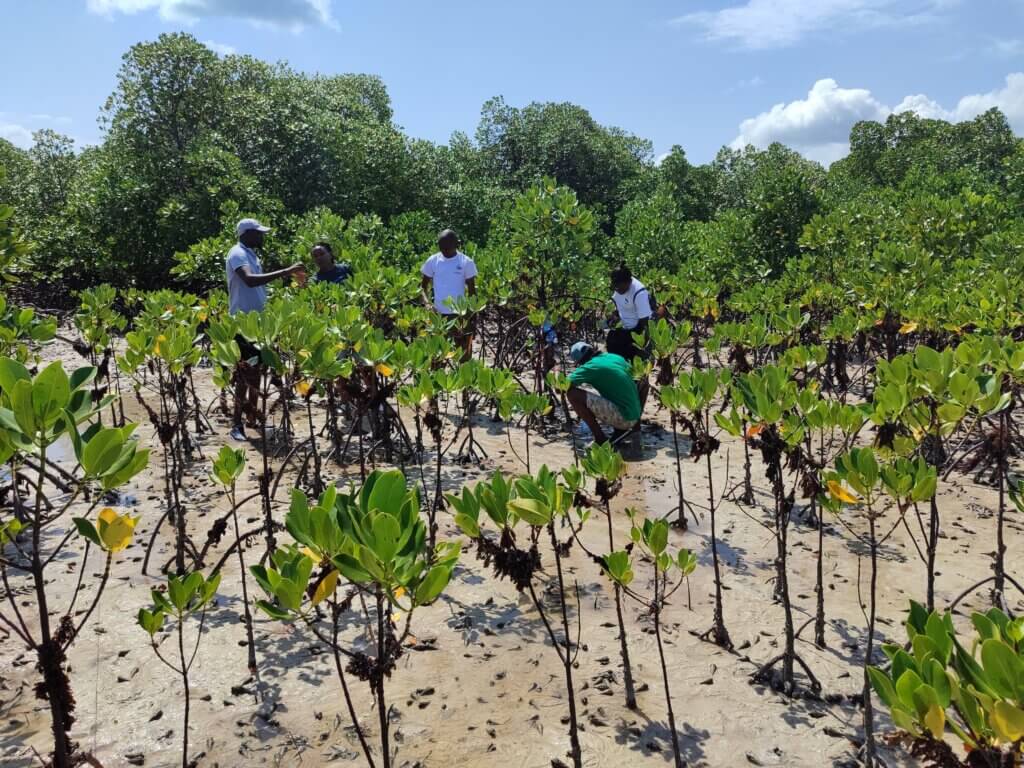
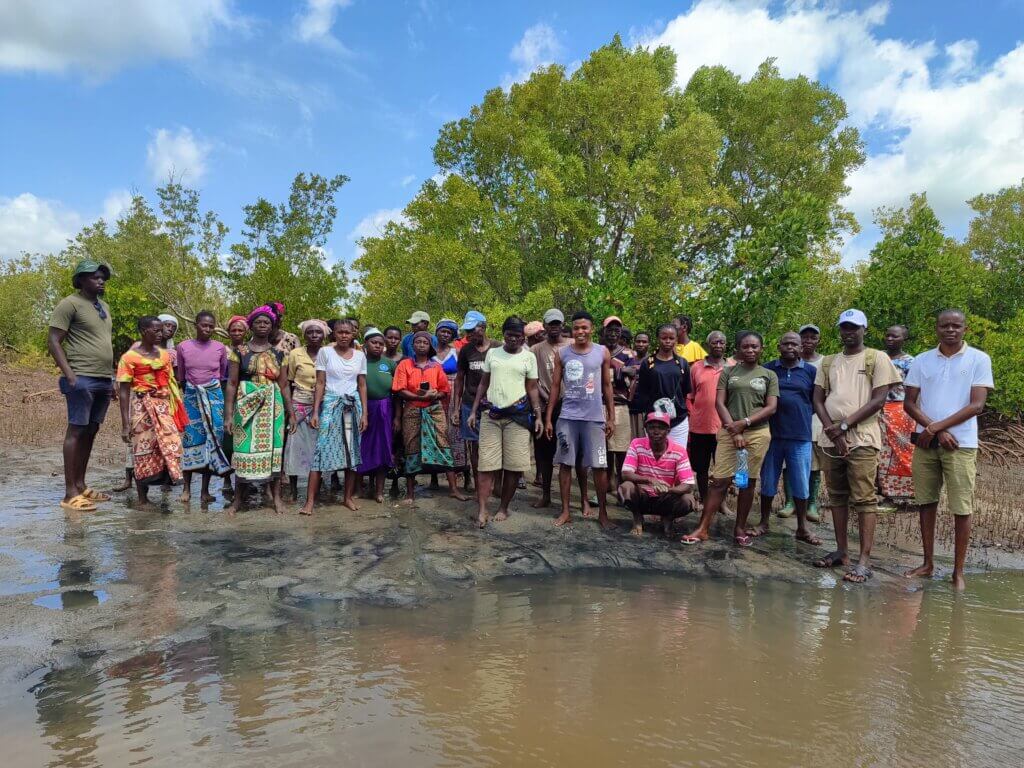
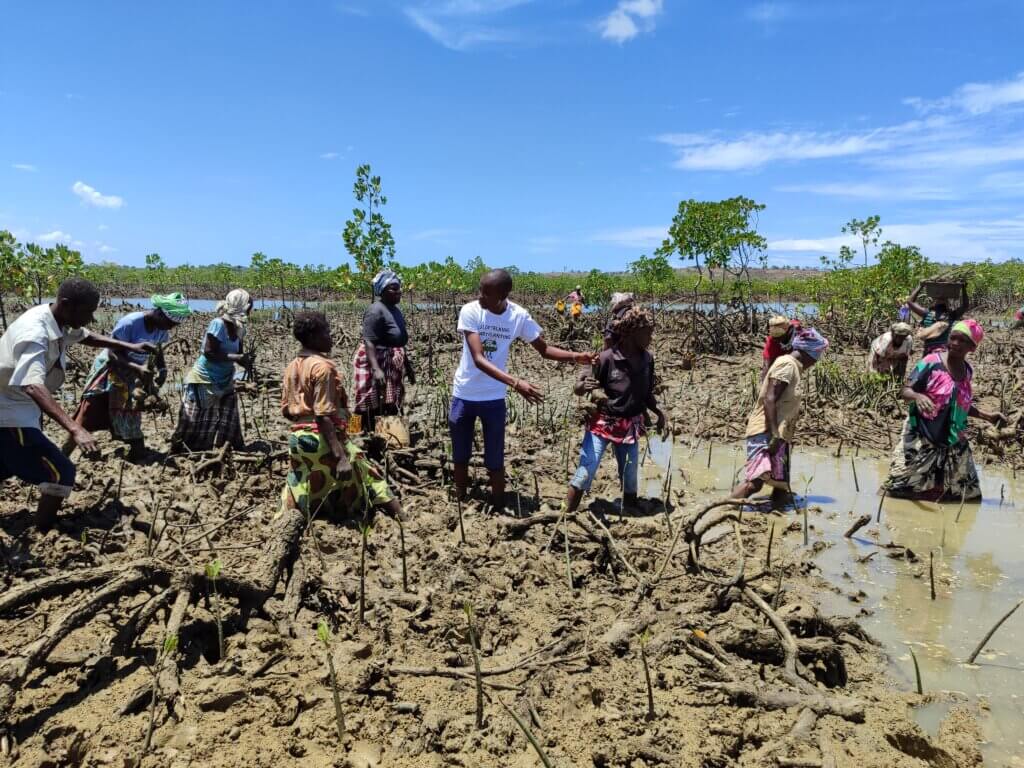
You can explore the biodiversity Julius and his team are protecting through their iNaturalist project or read more about the biodiversity credit initiative in this Mongabay article.
Reforesting Kenya, One School at a Time
Through his other initiative, Kenya Schools Botanic Garden Initiative, Julius is reimagining how climate action happens in schools. In 2023, Julius visited his former primary school and observed significant changes. The area, previously semi-arid, had become a thriving forest. This forest was the result of trees planted years earlier by Julius and his classmates. Many trees still bore small name tags identifying the students who had planted them. “That visit changed everything,” he recalls. “I thought, what if every school in Kenya could look like this? What if we could replicate this transformation across the entire country?”
This moment sparked the idea with an ambition to establish one-hectare botanic gardens in each of Kenya’s 37,930 schools, planting more than 60 million indigenous trees across 37,000 hectares of land. It focuses not only on reforestation but also seeks to instill a culture of environmental stewardship among the youth, recognizing that fostering conservation values early is key to creating a long-lasting impact.
The first of these gardens was launched in 2023 at Ikatini Secondary School, supported by BEYOND TREES. True to Julius’s approach, the project is youth-led and rooted in a simple but powerful belief: the best time to shape behavior is while people are still young. “We’re working to shape a generation of environmentally conscious citizens who will drive conservation and climate action across Kenya, and the world,” he says.
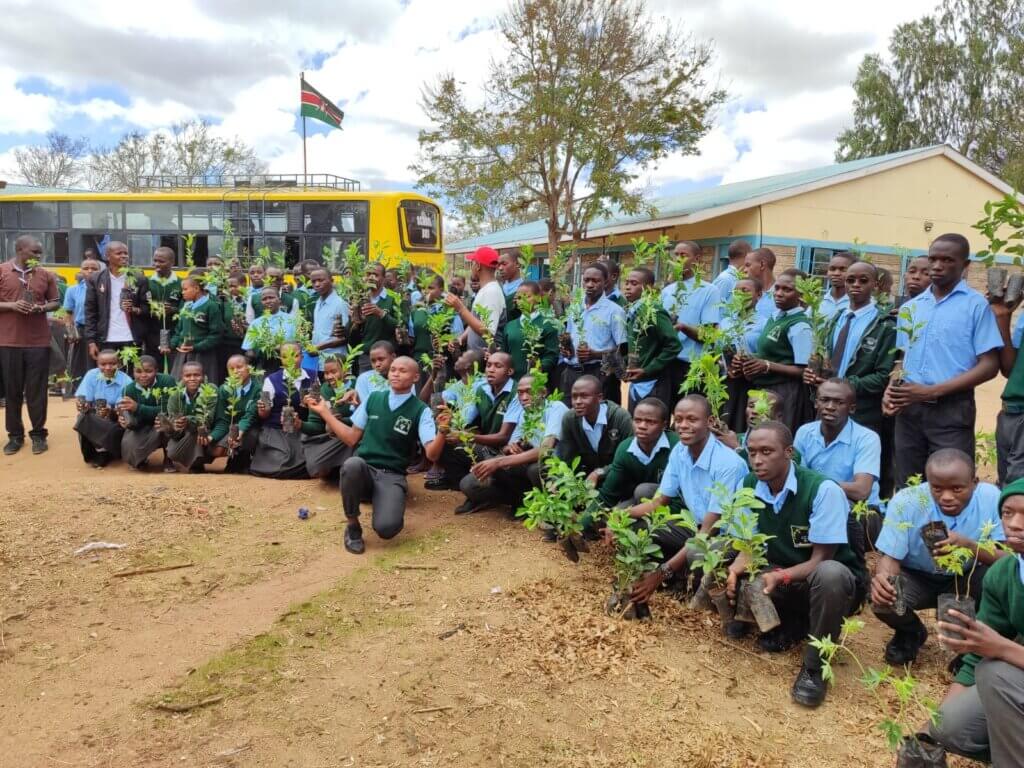
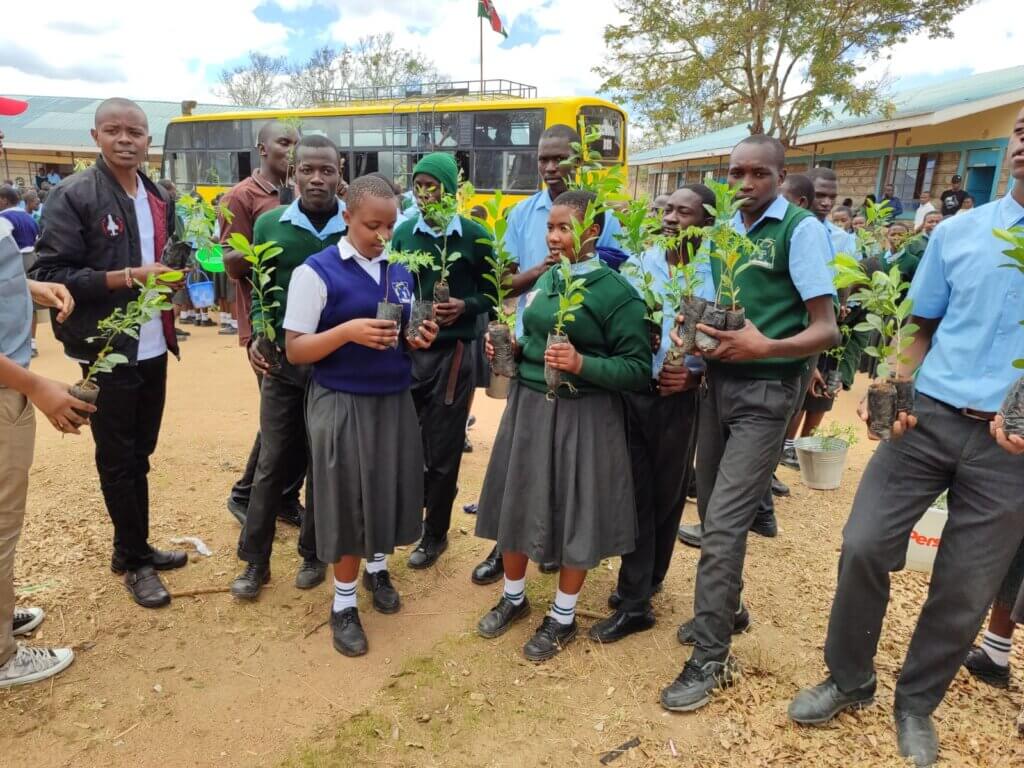
A Voice for Justice on the Global Stage
Julius doesn’t only act locally, he also brings the voices of vulnerable communities to global platforms. At both COP28 and COP29, he represented youth perspectives and demanded accountability in international climate negotiations.
At COP29 in Baku, he shared a striking metaphor that resonated deeply: “A big, well-fed man sits on the back of a frail, hungry man. The big man knows his weight is sinking the smaller man, yet offers every kind of help except stepping down…This mirrors the dynamic between the Global North and South in climate negotiations,” he points out. “True climate justice demands more than self-righteous gestures; it requires systemic change,” he concludes.
These words are more than a critique; they’re a call to action, grounded in lived experience, as his work shows that real leadership means speaking hard truths while building practical solutions in the places that need them most.
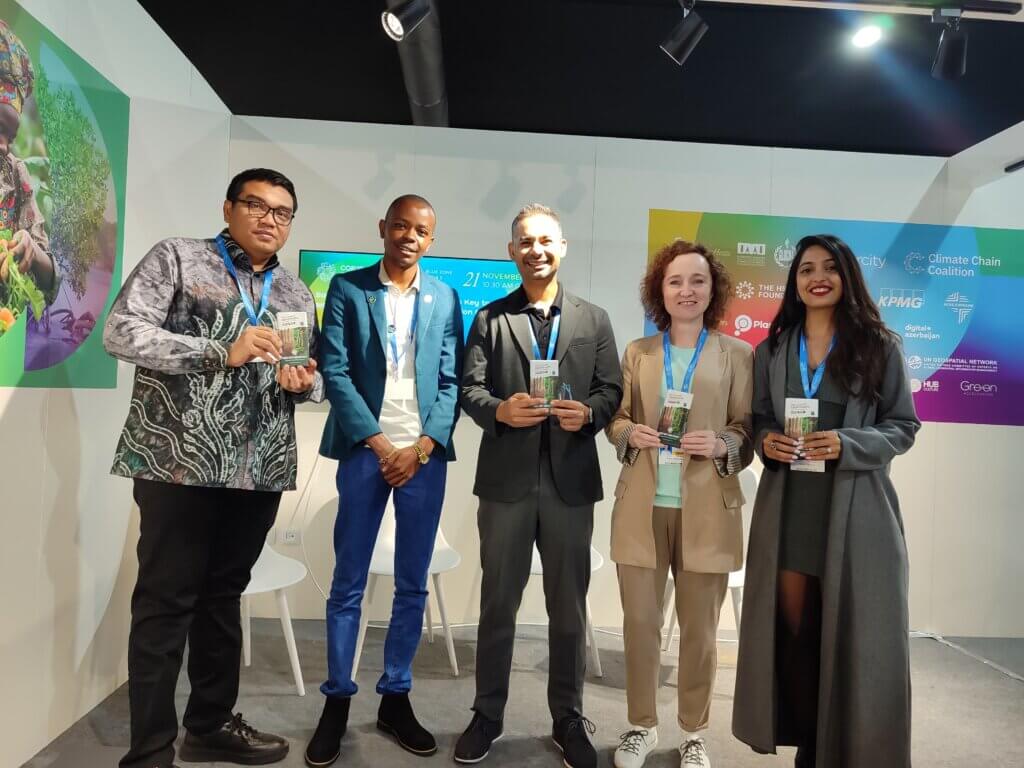
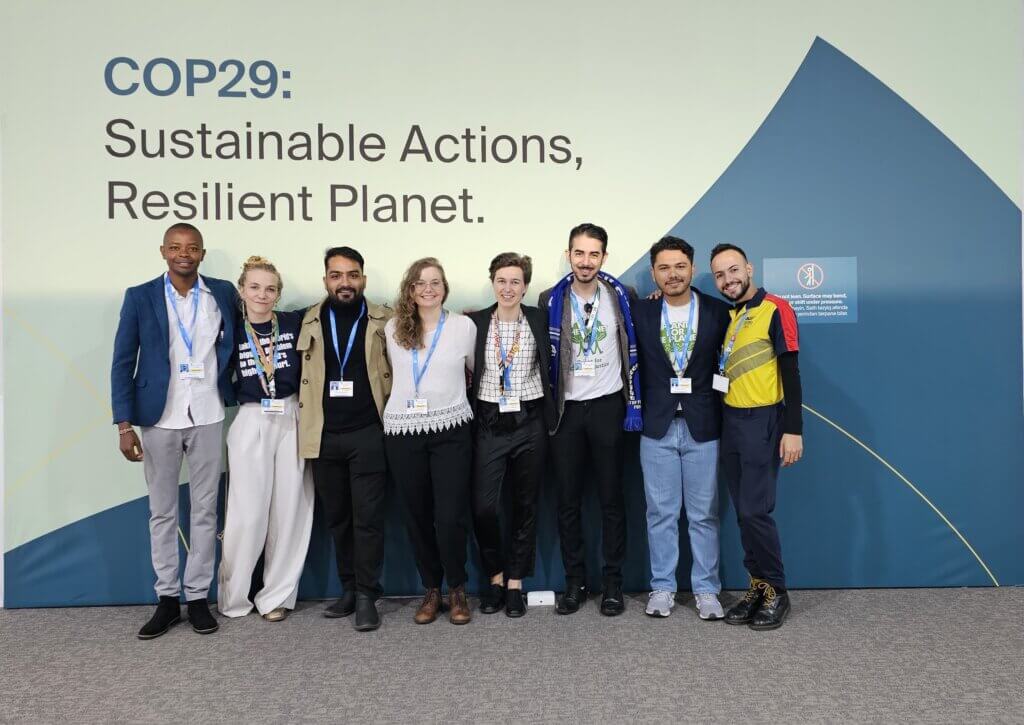
Connecting Local Action to Global Solidarity
Being part of the Plant-for-the-Planet network has strengthened Julius’s ability to connect his local efforts with global movements. “We share the same vision for protecting and restoring nature, something I’m deeply passionate about,” he says. “Coming from communities in Kenya that are already suffering the effects of extreme weather events, I believe that our fight against climate crisis must be both local and global. Being part of this network allows me to learn from others, share experiences, and bring back valuable knowledge and adaptation strategies to empower more youths and communities at home. Together, we are stronger and more effective in driving meaningful change.”
A Message to the Next Generation
Julius’s message to young people around the world is clear: you don’t need to have everything figured out to begin. “Start where you are, with what you have. You don’t need to have all the answers to take the first step. Like the hummingbird’s small role in the forest fire, do what you can, no matter how small it seems”, he says.
He believes the power of youth lies not just in bold action, but in small, steady efforts that ripple outward. “You have power, not just in your actions, but in your consistency, courage, and compassion. Be a spark in your school, your neighborhood, your community. Learn, collaborate, ask questions, and build with others. Sustainability is not about one hero, it’s about many small acts coming together,” he points out.
What’s the message he carries with him everywhere, from rural schools to global summits? “The world needs you, your voice, your passion, and your commitment to a better future,” he says. Climate justice isn’t just about planting trees or attending summits, it’s about uplifting the communities most affected by the crisis. The Earth is getting warmer, and the time to act is now,” he says. “Many communities, especially those least responsible for climate change, are already experiencing the harsh realities of extreme weather. That’s why education and empowerment are so critical.”
Action doesn’t have to start big. It just has to start somewhere. Real progress is made through small, consistent steps, especially when those steps are shared and multiplied by others. “I believe small actions matter, especially in a world where resources are limited,” he says. “One scientifically proven way to help combat the climate crisis is by planting trees to help cool down the planet. The question isn’t whether it can be done, but how we can each contribute in our own capacity. If we educate and empower others, and they do the same, we can create a global chain of action strong enough to protect our future,” he concludes.
Julius’ journey reminds us that there is no single path to becoming a climate leader. Whether through tech, forest restoration, or education, his story is one of determination, impact, and hope, anchored in community and powered by global solidarity. As part of the next generation of climate justice leaders, he shows that with courage, collaboration, and a clear purpose, change really can take root.
Now, the question is: are you ready to make a change and be part of the movement? The time to act is now.
